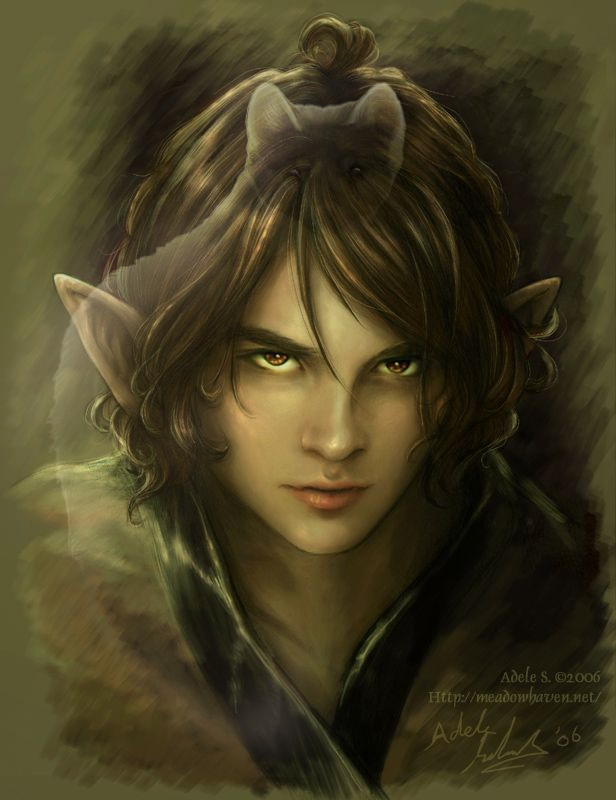Mink, the Little Scout
Mink is a shapechanger spirit with a mythology that's followed him since before The Exodus.
Mink's Doctrine
Mink is the patron god of the small and the stealthy. He blesses those who do what he once did, acting as messengers and scouts, although he is not partial to assisting those who work for governments or armies. Becoming a cleric of Mink might not involve interfacing with him or even knowing who he is. He simply provides his limited power to those who follow his ideals, although for those he likes, he's very easy to entreat for a conversation or a friendly game.
Mink can also be entreated for his own skills as a runner. He can be summoned with a ritual which, as with most principalities, is not uniform in its performance. The most common way to summon him is to invite him to play a game, and while stories say he's willing to bet his services on his victory, there are very few stories of anyone actually claiming victory in a game he'll participate in. Usually, the game should be considered a gift for the scout, and the bargain must be negotiated. If he agrees to the terms, he'll scout other planes, spy on gods, or deliver artifacts from one plane to another.
The Tale of The Little Scout
Mink was a diminutive spirit during the Celestial Age. Although immortal, he was hardly more powerful than a mortal. While Geldiran consumed cities and The Anaphroc scorched forests into deserts, Mink turned his attention to the smallest creatures. Rather than bending the world, he changed his own shape. He took on the forms of rats, deer, flies, rabbits, frogs, and lizards—or whatever version of them existed back then. He hid among the smallest creatures, and he gained a perspective of the world no other god seemed to have. "The Little Scout" or "The Little Mink" is a common fairytale across Kairos, which tells the story of Mink escaping a hungry hunter. Depending on the story, he punishes the hunter for trying to kill an innocent creature by tricking him into running off a cliff, bumbling into poisonous weeds, or trapping his own foot. Either way, Mink triumphs, and in his victory, he watches the hunter return to his family emptyhanded. When Mink watches the hunter tell his family there's no food, he realizes that the hunter was trying to catch a mink because there was nothing else to eat. Mink realizes that he's not the only one who fears the powerful celestials who control Kairos. He brings the family a meal of fish and eggs, and they share it. Together, they come to the conclusion that they're better off helping each other.
The story is likely a greatly simplified interpretation of a much more complicated event, but the result is true: Mink became a scout and a messenger, connecting people who otherwise never would have been able to help each other. Hunters could deliver food to those in need, villages could communicate, and news could travel, all because of a bird or a deer or a mink who served as their little scout. After the Exodus, Mink became a god. He settled, more or less, into his form as either himself or a mink, but now his responsibilities had changed. Being as allied with mortals as he was before was dangerous, especially while the pantheon was in flux. Now, his allegiances, goals, and methods are more esoteric. He's still the Scout, and he's still a messenger, but what he does is less sensical. Sometimes, he plays with mortal children, who only later in life realize they played pretend with a god. Other times, he tricks and undermines other deities, good and evil. Mostly, his reputation from the Celestial Age gives him the benefit of the doubt, and people use him as a symbol for the underdog, the disparaged, and the small. Some, though, believe The Exodus changed him, and that standing with the gods he sought to protect mortals from made him jaded and bitter.

Titles
The Little Mink, The Little Scout
Pronouns
he/him
Provinces
Scouting and Couriering
Domains
Knowledge, Trickery
Classification
Principality
Alignment
Chaotic Good
Pillar
The Pillar of Night



Comments